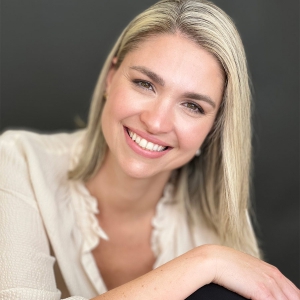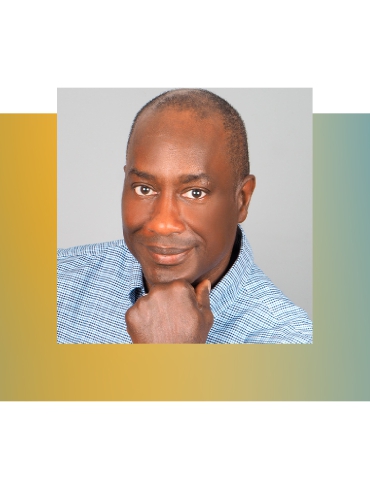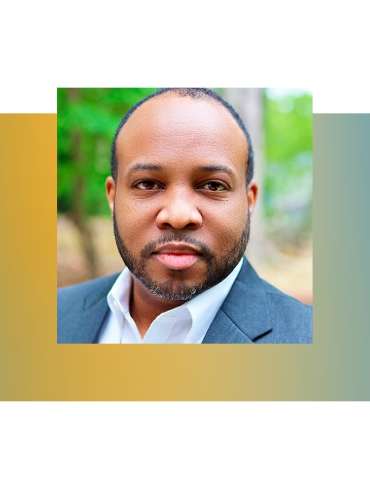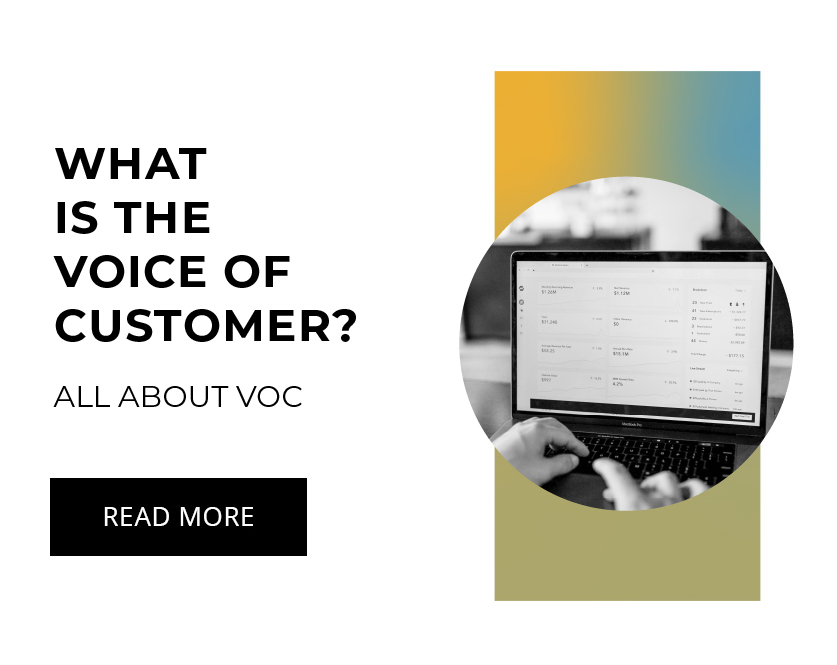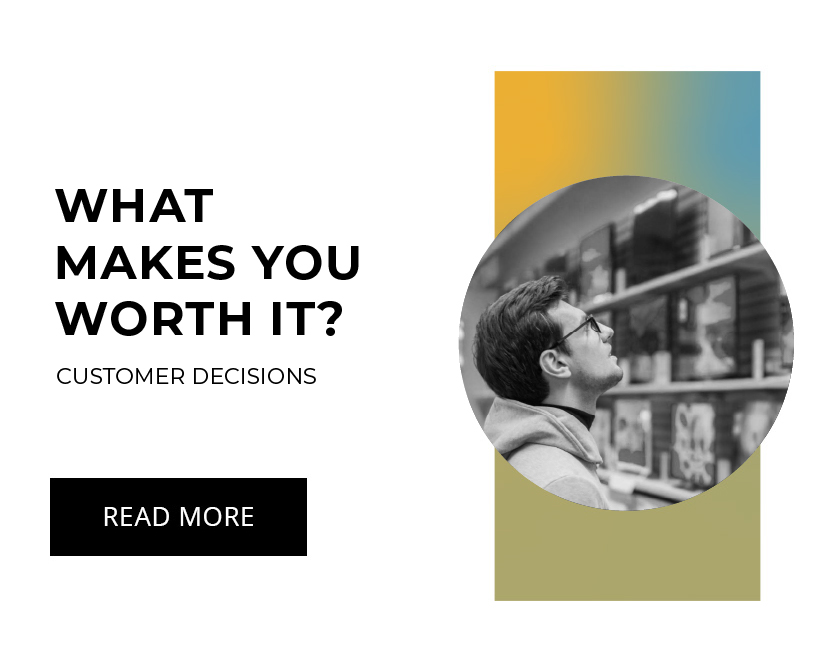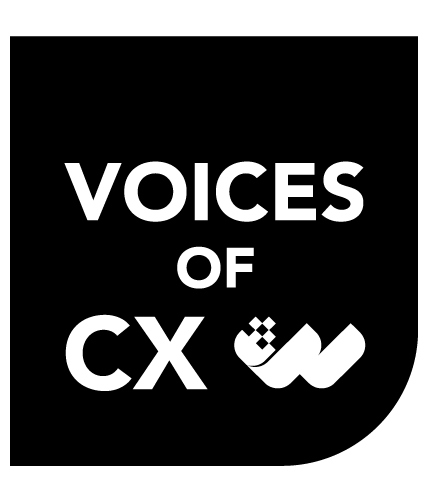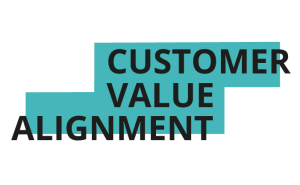About Michael G. Bartlett
Michael Bartlett is a recent transplant from the United Kingdom, Michael lives and works in Missouri as the Director of Experience Innovation at JMARK Business Solutions. He also runs his own Customer Experience training and consulting firm and is the author of CCXP Exam Preparation. Michael obtained his masters in Artificial Intelligence in 1999 and has been building NLP systems and Neural Networks ever since. His current focus is on using Human Centered Design to augment A.I. implementations.
Follow Michael G Bartlett on LinkedIn
Purchase Michael G Bartlett’s CCXP Exam Book
Practice on Michael G Bartlett’s CCXP Exam Simulator
Follow Worthix on LinkedIn
Follow Worthix on Twitter: @worthix
Follow Mary Drumond on LinkedIn
Follow Mary Drumond on Twitter: @drumondmary
Transcript:
[00:06] Mary Drumond: You’re listening to Voices of Customer Experience podcast. I‘m your host Mary Drumond, and on this podcast we shine the spotlight on individuals who are making a difference in customer experience. We also proudly bring you the very best of customer experience, behavior economics, data analytics and design. Make sure to subscribe or follow us on social for updates. Voices of Customer Experience is brought to you by Worthix. Discover your worth at worthix.com. [00:35] MD: Michael Bartlett is a recent transplant from the United Kingdom. He lives and works in Missouri as the Director of Experience Innovation at JMARK Business Solutions. Michael also runs his own customer experience training and consulting firm and is the author of the CCXP Exam Preparation. He obtained his Master’s in Artificial Intelligence in 1999 and has been building NLP systems and neural networks ever since. His current focus is on using human center designed to augment AI Implementations. Thanks for coming on, Michael. How are you?
[01:07] Michael Bartlett: I’m doing great. How are you doing, Mary?
[01:09] MD: Great and you are an import from the UK, am I right?
[01:13] MB: That’s correct.
[01:17] MD: How long have you been here?
[01:19] MB: Oh, probably seven years now. I’ve been coming to the states since the year 2000, but I officially moved out here in 2011.
[01:26] MD: When you go back home do people say you have an American accent at this point?
[01:29] MB: No, but they do say that I have an ever so slight southern draw when I end sentences apparently.
[01:36] MD: Great. Well, Michael, you do a lot of work with the CXPA, which is a Customer Experience Professionals Association. Is that right? [01:43] MB: That is right, yep. [01:45] MD: Before getting into all of that, can you tell me a little bit about your career and your background, how you got started and how after everything you’ve done you ended up in CX?
[01:55] MB: Yeah. Well, my education was a computer science and artificial intelligence. And a funny story is I actually tried to drop out of college when I was studying computer science because I’d been programming since I was eight years old. I mean, my best friend had a ZX spectrum and then I had an Atari ST, and we used to write computer games when we were kids and so we actually kind of knew a lot more than the teachers when we finally started studying computers and it was a real let down so I try to drop out and go to film school. But there just wasn’t enough funding available unfortunately because that was one of my other passions. So I saw it through. I found AI, loved AI. I did my masters in AI and then kind of got a job like most college students did. I just wanted a job for the sake of having a job. I was chasing the money rather than maybe chasing what I was really interested in. And so I wound up as a programmer and was really unhappy. Was one of those people that was shoved in a corner, told what to do, and was craving the interaction with people and just wasn’t getting it. And so everything changed in 2001. I went to work at a space agency that was based out of both England, Spain and Germany and France, that was called Astrium and I thought I was just doing a regular programming job at the time and then they basically, no one was telling me what to do. They said here’s the client, this is what they want, go have a conversation with them. And Agile really wasn’t a thing back then.
[03:28] MB: So the kinds of strategies that I employed through common sense ended up being very much like Agile and suddenly it was, you know, caring about the customer experience, trying to make sure that the customer was always aware of what was happening and giving them what they wanted, but also protecting them from themselves because sometimes they’d have some asks that probably weren’t going to benefit them in the long run. So that kind of reshaped my career. And then after that I went to Accenture, which was even more customer focused and really enjoyed the work I did there in terms of turning around really unhappy clients and then kind of took a segue with my career because while I was at Accenture, I shot a Zombie movie just for fun with a bunch of my friends and all of the Zombie Extras in the movie are actually Accenture employees, so you can make of that what you will.
[04:15] MB: But that film ended up being bought by Harvey Weinstein and then they wanted to do a sequel and we made all this money out of the blue. The film is called the Zombie Diaries. The reason the film did so well is because George Romero had just made a comeback. He made a film called Diary of the Dead. Our film was ahead of his film by about one year, um, and they were the exactly the same idea. So then there was this rivalry, which film is going to be the best. A lot of people accused us of copying his film, which obviously wasn’t the case. Romero is one of my heroes growing up, you know, so that blew up and then it just gave us an opportunity to produce movies and work in the movie business for a little while and I mean really that is, there’s a lot of customer experience in that world in terms of crafting the experience on all of the different sensory levels.
[05:09] MB: And then of course setting those expectations with the marketing and the poster designs. These sales companies that we work with allowed us to be fully involved with that process from beginning to end. And then seeing that right through with all of the publicity. So the customer experience seeds had been planted long ago really when I was Astrium and Accenture, but they were amplified so much when I was in the film business. So then anyway, the DVD market kind of crumbles. And so I moved to move to America and then I started trying to find jobs that are aligned with those kinds of skills and those kinds of passions. And so I slowly worked my way, navigated my way through different roles until I was able to allow that where I am now and doing customer experience full time and so it has been a very long journey with lots of twists and turns, but I kind of made it to a place where I, I love what I do now, which is what I wish I had done from the very beginning.
[06:09] MD: Tell me how you got involved with the CXPA. [06:12] MB: So the CXPA, I was working at a local school district as the user experience manager here in Springfield, Missouri. And I was just researching if there was people doing this because I didn’t really know much about the official customer experience world, you know, I think there was only like four or five books on the market at the time I joined the district as well. So I was just trying to find other people that were doing this so I could, you know, make contacts and understand best practices and that kind of thing. Certainly no school districts that I was aware of were doing it and so I just did some googling and then I found the CXPA and I found the CCXP and didn’t really get involved with the CXPA until I had written my book, which is a different story, but once I’d written the book and I got involved with the CXPA, then I think I was one of the more regular contributors to the forum.
[07:05] MB: I was someone who always had new ideas and so they asked me if I’d be interested in working with them on the professional development committee because obviously we’re, all this discipline is still in its infancy. So I was working with Megan Burns and a few other folks there to try and create a body of knowledge and uh, and kind of drive some more structure around the CXPA. So that’s kind of how I got involved with those guys. [07:26] MD: So you actually contributed, if I’m not mistaken to the handbook or a manual on artificial intelligence and customer experience? [07:44] MB: That’s right. Yeah. I know Anita Siassios very well who’s based in the Melbourne office and I apologize Anita, if you are listening and I mispronounced your last name. And Anita kind of connected with me and we’d spoken about AI a little bit and she mentioned that there was this need for a panel of folks that had experience in that arena to be able to come and contribute to this paper.
[08:04] MB: And so that’s kind of how I got involved with that. And you know how it is when you, when you get any group of people together, everyone’s so busy sometimes that things start to flag a little bit. We have had this with professional development committee as well, so I was always one of those high energy folks that was able to keep pushing things forwards. And so that’s kind of why my involvement kinda grew on that project. And I was pretty pleased with the end result. [08:28] MD: So you ended up kind of taking over the project or taking it under your wing in a sense? [08:34] MB: Anita was kind of the PM on the project by, was the editor on it and made sure that I was, all of the content was good and aligned. [08:42] MD: So before we get into the actual CCX be in the book you wrote, tell me about how you saw artificial intelligence and customer experience because I mean nowadays it’s blown up, but how, how long ago was this when you wrote this paper?
[09:00] MB: Oh, the paper I think was only last year if I’m correct.
[09:03] MD: Right. So it was right on the cusp of this kind of becoming a thing that was when, I mean Worthix my company, we were incorporated in in 2015 with this whole idea of connecting artificial intelligence and customer experience. But what did you see? What sort of, I don’t know, opportunity or maybe even magic do you see right there that actually led you to get into it deeper?
[09:26] MB: Well, so AI has been something that I’ve been trying to go back to for a long time. A really funny story is I was working at a startup here in Missouri and I happened to post on Facebook that I was going to say I’ve always wanted to enter the competition for the chat bots they have back in Bletchley Park in England and of course it’s just one of those things I just, you know, you never have the free time to do this kind of stuff. And so I just happened to mention that I was going to be trying to do that and then one of my work colleagues said, hey, I want to talk to you about this. Would you like to kind of come out and have a drink and discuss it? And then I found out the most incredible revelation, which is this random guy that was a project manager that worked with me came second in the world in that competition.
[10:11] MB: And I was like, wow. And you’re like here in Ozark, Missouri, like that’s really surprising. And he basically was an ex Deloitte consultant and he kind of liked me. He was really interested in AI and he just went away one day and built this little bot called Isr and it was this alien and it had a little app and he made a fortune doing this and he could have easily retired if he wanted to and he just carried on working to contribute to his daughter’s college, but that’s how I met this girl and then he kind of already got the spark going because it was just so crazy to meet someone out of the blue that was also interested in this as well, especially out here in southwest Missouri. So that kind of got the spark going. And then I started researching into where things were and I saw it.
[10:55] MB: I mean, I’ll be frank, nothing’s really changed in AI from my opinion. I was doing this back in 1999 and I don’t see anything new. This, these so called deep neural networks were around back there and they were just called multilayer neuronetworks back then. Right now the thing that’s considered the most cutting edge is evolutionary strategies for, for machine learning. Those are known as genetic algorithms and they were also around in 1999. But what’s changed is the processing power is just off the chart right now. So that’s where I see some real interesting opportunities. So that’s kind of what I’m excited about and what I’m trying to trying to bring to JMARK and to some of the other companies that I talk to. I just see some really good opportunities there.
[11:41] MD: Oh, that’s great. Okay. So Getting Back to the CCXP, how did you come around to write the handbook or the manual on taking the CCXP exam?
[11:53] MB: So the first time I took the CCXP exam, I came very close to passing, but I failed and it was because I couldn’t find any structure in terms of, you know, like with the PMP exam, there’s a very clear path. These are the different areas that you need to study, these are the different things that you need to know, these are the different skills you need to have. And there wasn’t really any of that for the CCXP. There was the six competencies, but there was nothing more in depth. There was some very inconsistent training out there, so there’s one course I took that was pretty good and it seemed to align around the six competencies quite well. But then there was this bunch of practice questions I bought that were just, I mean they were all over the place. It looked like they crammed a bunch of people into a room and just made them, you know, knock out questions over 100 questions a day.
[12:46] MB: Half the questions didn’t make sense. They will grammatically will over the place. And I just was very frustrated with the quality of the training that was out there. And so you know, the exam is, it is not cheap and it costs a lot of money to retake the exam as well. So what I did is when I prepared for my reset, I want it to go through and see if I could take all of this noise that was out there in the customer experience world and abstract out some really clear patterns I could use to inform my decision making during the exam. So I got a big white board, I got a bunch of texts on customer experience and I had obviously a ton of articles that were out there as well. And I spent probably about two weeks just going through and pulling out everything.
[13:29] MB: And so after going through all the books, all the articles, I had one white board and it looked like a mad professors whiteboard. But it had the 18 clear consistent principles that I found. So then what I did is I went with that knowledge, retook the exam, passed the exam, and I thought, right, what I will do is to give back, I’ll turn that into a book and then that will help other people pass the exam. And then I’ll just take the money that I get from it and I’ll use that to help my other passion, which is the, you know, the dog rescues and the, uh, the animal shelters. And so it took me four days. The hardest part actually was coming up with the actual practice questions because I wanted to make them as close to the real exam as I could remember, so that they would really set people up for success. So that’s kind of the story behind that book. Really it was because it was the whole thing was born out of failure. Had I passed the exam, I don’t know if I ever would have written it.
[14:29] MD: Michael G. Bartlett CCXP’s simulator is one of the best ways to prepare for the CCXP exam. For the next seven days, podcast listeners can get 20 percent off the platinum package composed of the simulator, plus the prep cast by using discount code worthix2019. If you’ve been considering taking the CCXP exam, now’s the time.
[14:54] MD: Let me ask you something. Did you ever connect with the folks over at the CXPA the ones who of course have the exam or administer the exam and talk to them and get some sort of official title on there, like the Official Guide to passing the CCXP or anything like that?
[15:14] MB: Yeah. So as you know, this whole business is all about relationships, so I didn’t want to step on anyone’s toes or upset anybody. So I went to Drew, who was the person that was in charge of the CCXP at the time and I’d actually dealt with them backwards and forwards in terms of scheduling the exam and I said, look, I’ve written this book and I want your blessing that I can go ahead and publish this and I’m not going to be making any money out of it personally. But I just wanted to make sure the CXPA is okay with this, um, because I don’t want to alienate the largest professional group in this space. And so anyway, everything went quiet.
[15:57] MD: You also didn’t want to feel like a magician that’s like giving away the tricks of the trade.
[16:01] MB: Exactly. So everything went quiet for a little while and then I suddenly get this email back and everybody’s copied on it, you know, the CEO of the CXPA was copied on it and it was just an incredibly positive email about, you know, something like this has been needed for a long time and we really appreciate the fact that you did this off your own back and so anyway, they got right behind it and they can’t officially endorse it. And also, I am not at the time that we’re recording this, I’m not technically a certified trainer, although I will be becoming one towards the end of the year. So again, they couldn’t really list me out on the website or anything like that, but at the end of the day, that’s fine. I just wanted their blessing. I didn’t want to upset anybody or alienate anybody as long as I had that blessing, I can take it from there, I can put it on Amazon, and I can push forwards.
[16:52] MD: Right. And what came first? You writing this book or being on the AI panel?
[16:56] MB: Oh, the book. The book was written in, think it was March, no, December 2016. 2016 I wrote the book, and I think I published it in March 2017.
[17:10] MD: So let me ask you something if, let’s take me for an example, if I decide that I’m going to sign up to take the CCXP test, where do I start?
[17:20] MB: The first thing you need to do is to visit the CCXP.org website, and that will give you kind of look basic information that you need to understand the process, what’s involved, what the competencies are, so you’ll be able to get an idea of where your strengths lie and maybe areas that you might need to get some additional experience to qualify. Then you go through the application process. You have to list out for each competency why you feel that you meet the requirements and then once that’s all done, once you’ve got your approval to take the exam, the next thing you need to do then is then look at, okay, so how am I going to train for it? And so the book is always a really good starting point. And in the book I recommend some of the official trainers. So Ian Golding, if you want to do a masterclass, he is in England, so that really only applies to English people, he’s very good. If you’re out in America, and you want to do a master class, then someone like Lynn Hunsaker is really good from ClearAction.
[18:17] MB: She’s down on the west coast. And then what I have is I have a two products. I have something called the CCXP exam simulator. And so what I did is I built a mock version of the exam that looks exactly like it. And not only can you can you go through that process of taking the exam, but then you can see what we’ll see all the questions and what, which ones you got correct, which ones you missed and you can get explanations for why as well. And the reason I built that product is because I wanted to. I remember when I took my exam and I watched this course about how to get ready for an exam and so I got in the testing center and I did all these breathing exercises and tried to get in this state and I thought, okay, I pressed the button, go and the timer starts counting down and all hell breaks loose and my heart rate goes crazy and my breathing goes crazy and I thought I almost needed to get the failure out of the way to put me in a position in the pass, you know.
[19:18] MB: And so I decided to do was build this product so now you can fail, you can fail twice. I’ve got two mock exams and you’ll be able to. It’s so much harder than the real exam that when you take the real exam, the real exam feels easy and then the bolt, all that. Yeah. And that’s the idea is to overprepare you. [19:35] MD: It’s like training with training with weights, right? It’s really difficult. And then once you get on there and you feel you can fly like a bird, right? [19:44] MB: Exactly, exactly, and I’ve had great success with it so far. And then the other thing I’ve done just to solidify it because see one of the problems I have is people buy the simulator the day before the exam, which is not really how it’s supposed to be used. This way you can just go through and then the other version, you know there’s more.
[20:03] MB: So I have a version of my exam that has an AI component to it as well and what it does is it analyzes where you were weak across not just the six competencies but 36 individual areas within those competencies. So you could be really weak in just like five areas and you can be so bad. You could be failing the exam just because of that, but you’re not going to know that if you use any other means of training. Whereas this can actually say to you now that you failed, this is where you’re weak and you need to target your learning in just this area. And I give people the opportunity to say how long they’ve got on their exam so that I can generate the appropriate amount of materials. I’ve only got one week, it’s just going to be a bunch of articles, but if they’ve got say two months and I can give them some more in depth materials to review as well.
[20:48] MB: So that’s kind of the fancy version of the simulator. And then the third version is the – I built something called the CCXP Prep Cast and that’s just like a podcast. It’s just powerpoint slides with me talking over the top of it. And that’s basically my version of the training. So if you still feel that you’re not ready for the exam where you’ve taken the training and you failed the exam, then I see this almost like reinforcement training. I can’t see anybody failing once they take that course. So I feel like I’ve done enough now that people should be able to pass that exam.
[21:23] MD: I think I’m going to do it just because you’re talking about it so much now. I feel empowered to do it, but what do you think would be the appropriate period of time for people to study before taking the test so you know, so that we don’t leave it for the last moment?
[21:39] MB: Yeah, and that was kind of one of the mistakes that I made as well as I left it too late. So my strategy on the second exam, obviously after all that research, it was all done over the Christmas break, so I probably spent a good two to three weeks preparing and then once those two to three weeks were up I was pretty much ready. So I would say give it a month. And then that way you can do all your studying, you can take the simulator, you can have time to familiarize yourself with the principals in the book as well because they can guide you if you’re really not sure all the time, you’ll get it down to two out of four answers and you can’t decide. The principles can help you figure out most of the time which one of those two answers is correct. So yeah, I would recommend a month. And obviously the new exam is in play now, so it’s different from the old version. There’s 100 questions now and a larger time limit.
[22:31] MD: What is the time limit? How long does it take?
[22:33] MB: So the original exam took two hours. The new exam I believe is three hours.
[22:41] MD: That sounds wonderful. A bit longer, huh?
[22:43] MB: Well that’s just your time limit, you know you could, I mean I heard from Ian Golding, there was a guy that did the exam in 30 minutes. That’s the record.
[22:52] MD: And you go to a training center or you take it from home, what do you do?
[22:58] MB: So currently, I don’t know if this is going to change, but currently the way it is is that they have a training partner they work with who have centers all over the US and you just go to their website, book it in. So in my case here in Springfield, there was a place just 20 minutes up the road, you know, does staffing and they have a little room and they’ll take all your, you know, your phones and everything off of you and then you’ll go in that room and sit the exam in peace and quiet.
[23:21] MD: In case someone wants to just do your simulator and read the book just to, I don’t know, improve as a CX professional. Is there a good takeaway there or do you think it’s more specifically related to the exam?
[23:37] MB: No, actually. So I’ve made my course much more involved in the exam and I’ve done this for, for a number of reasons. So firstly I’m just lazy and I don’t want to have to keep remaking my material over and over again. And secondly, I wanted to future proof it within reason because you can’t future proof anything these days did the rate of disruption. But I wanted to make it so that the CCXP could change the exam, make it much more harder in a year or two. And my materials will still be okay. And so, I got an email from one of the consultants and one of the biggest CX companies and he said to me, all of us are using your simulator right now. And he said, the great thing about it is we’re all learning from it. We’re learning new things from it and he said you should be really proud of that. He goes because we consider ourselves very seasoned consultants and so I was pretty, pretty happy when I got that message.
[24:34] MD: That’s awesome. And tell me about where the resources or the money that you gather from selling this book in the simulator – you said that you’re not making any money off of it. All of this money goes into helping your projects. Can you talk a little bit about these projects?
[24:54] MB: Yeah. So the book, when I wrote the book, I get maybe $200, you know, it can vary around that. When I first launched it, there was a lot of popularity and interest around this, so I think the first two months we actually brought $500 back in the first two months each. So for example, I specifically remember when that happened and the humane society just pulled seven dogs, you know, that were going to be put to sleep. And it was normally taking that many dogs in one point in time is very difficult. So I just wrote them a check for $700 and gave it to them and that came out of the proceeds. Sometimes I’ll go ahead and put them on my own money up first and then reimbursed with the money that comes in if I need to do that, if there’s something really serious that happens.
[25:41] MB: But what happened with the simulator is originally the simulator, I was just going to give away the taxable profits because my wife was saying, look, I really appreciate what you’re doing is very noble Mike, but you know, you could maybe make a little bit of extra money for the family while you’re at it as well. So I said what we’ll do is I’ll just keep the textbook for so I’ll give 20 percent of the simulator and then we’ll use the rest of the family. Well, unfortunately it didn’t work out that way because what happened was as the simulator grew and started making more and more money, so my network of animal rescue started growing and there were more and more emergency cases and so the big one that we had was I became networked with the shelters in Corpus Christi in Texas this year and they have a ton of dogs that are really, really serious danger and they’re also in a much worse shape.
[26:29] MB: Most of those dogs have heart worm, and they need expensive treatments. So you’ve got to get them from Corpus Christi to southwest Missouri and you got to get them treated. You have to get them boarded and that sort of very expensive. So almost all of the money from, from this year’s taking the simulator has gone to, to help in those dogs out. And so we probably, I would say this year, normally I did donate to other rescues as well, but this was my own rescue. This is a rescue that I work with called Heartland Senior Dog Rescue that’s based out of Joplin and I was managing the Springfield Division and we brought in probably, I would say 25 different dogs and they are all safe now. And had the simulator not existed, many of those dogs wouldn’t be alive today. So you know, it just seems to be never ending balance. Those are always really brutal in terms of people just dumping their dogs. So I’m hoping with the new course what we can generate extra revenue and keep ahead of the game on there.
[27:25] MD: That’s awesome. So anyone who’s out there who’s looking to take the CCXP exam, buy Michael’s book, it’ll make you more prepared. You’ll be a better person and a better professional and you will also in turn help all these dogs that need help. So I mean, totally a win win right there. And I’m going to, as soon as we’re done with this podcast, I’m going to go and buy your book as well. Not only because I’m interested and I want to know about it, but I also want to help your projects. So how can we find this book? Amazon? [27:56] MB: Oh, the book is just on Amazon. [27:25] MD: So just go on there and type your name or you know, CCXP and it’ll pop up probably right? [27:25] MB: That is correct. [27:25] MD: So let me ask you one final question before we wrap up for today. Do you think you’re going to stay in CX or are you going to get restless and find something else?
[28:15] MB: CX is kind of the uniform for everything that I’ve always been interested in. I mean, I’d love to go back to the film business at some point and help those guys with their CX because I think that they need it. But if I was ever going to move into anything else, it would probably just be expanding one of the disciplines which is into employee experience. I got to see firsthand what it was like when two investment companies took over a firm and ran it into the ground. This was a little startup I was telling you about. I got to see really good managers turned into really bad managers, and I saw some people’s lives destroyed, and it was not a pretty thing to watch. And that’s one of the reasons I became so obsessed with business in general is I remember standing on the periphery watching this all go down and I was thinking to myself, why is there a person being paid millions of dollars to run this operation?
[29:07] MB: And they don’t know what they’re doing, like something’s not working there. And so that’s where I became fascinated with business culture, business strategy, customer experience, employee experience. And so that’s an area that I’m really interested in. I’m still learning like we all are. I’m going to get to a point where I can help businesses when they’re having these kinds of problems, when they’re getting ready to scale that and making sure all their bases are covered before they start scaling because otherwise those little cracks will become big cracks. And I’ve also seen cultures completely poisoned as well, so that’s an area that really interests me, but it’s still really palm parcel of CX. So I think this will be with me for the rest of my life.
[29:50] MD: Well that’s awesome. I’m so glad that you came on today to share your experience and your expertise with us. You can also find Michael on the Worthix Webinar, Reshaping CX with AI, speaking not only as an artificial intelligence expert, but as a CX expert as well. So thank you so much Michael. And we wish you the best of luck in continuing your efforts.
[30:14] MB: Thank you very much. It was a pleasure. You take it easy.
[30:21] MD: Thank you for listening to Voices of Customer experience. If you’d like to hear more or get a full podcast summary, visit the episode details page or go to blog.worthix.com/podcasts. This episode of Voices of Customer Experience was hosted and produced by Mary Drumond, cohosted by James Conrad, and edited by Nic Gomes.

